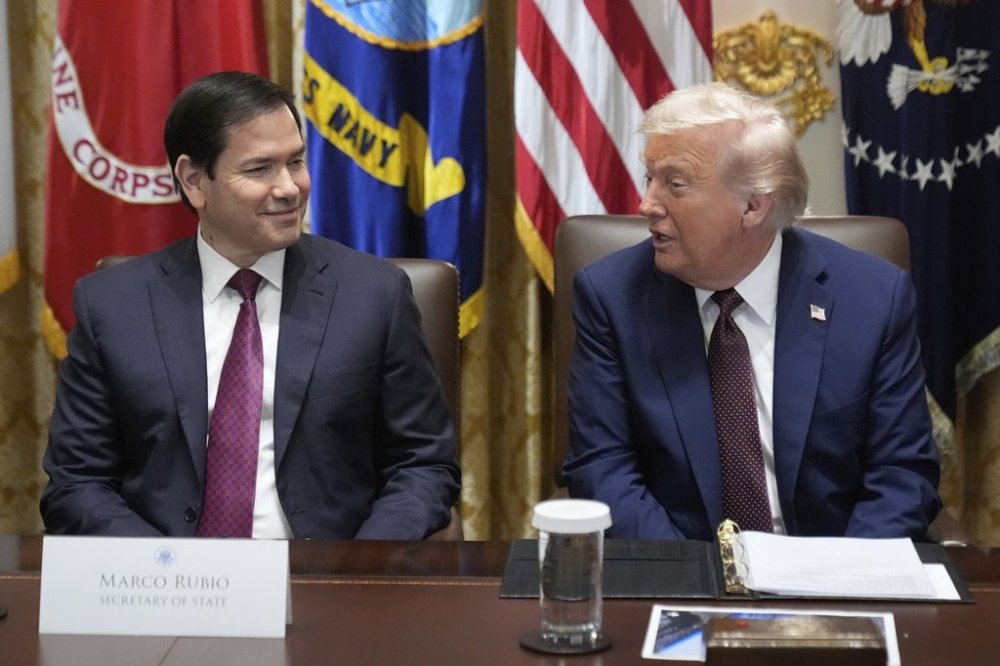World
Marco Rubio to Strengthen U.S. Ties During Latin America Visit

Marco Rubio, the United States Secretary of State, will embark on a diplomatic journey to Mexico and Ecuador next week. This trip marks his fourth visit to the Western Hemisphere since assuming office in January under President Donald Trump. The discussions during this visit will focus on critical issues such as immigration, organized crime, and the increasing influence of China in the region.
The State Department emphasized that Rubio’s upcoming trip underscores the United States’ commitment to secure its borders and combat threats from drug cartels. The Secretary’s itinerary reflects the Trump administration’s priorities, particularly in stemming illegal migration and fostering a competitive landscape for American businesses.
Previous Engagements and Key Agreements
Rubio’s previous trips this year included visits to various countries in Latin America and the Caribbean, as well as Canada. His first foreign excursion as Secretary of State took him to Panama, El Salvador, Guatemala, and the Dominican Republic. During that visit, he addressed the expanding influence of China, particularly concerning the Panama Canal, and negotiated agreements for these countries to accept deported immigrants from the U.S.
Notably, the agreement with El Salvador has faced legal challenges in federal courts, and it includes provisions that could involve the deportation of U.S. citizens. Following this initial trip, Rubio continued his diplomatic efforts in Jamaica, Guyana, and Suriname.
According to a senior State Department official, nearly every country in Latin America is currently accepting the return of their nationals being deported from the U.S. Most nations, with the exception of Nicaragua, have intensified their efforts against drug cartels, many of which are classified as foreign terrorist organizations by the United States.
Countering Chinese Influence
During his upcoming meetings, Rubio is expected to highlight the progress made in countering Chinese influence in the region. Steps taken by Panama to regain control of canal port facilities previously held by Chinese companies and its decision to withdraw from China’s Belt and Road Initiative are notable developments.
Ecuador, while beginning to distance itself from the Belt and Road project, faces challenges due to what has been described as “predatory” debt to China. These discussions will be crucial as the U.S. seeks to cultivate stronger alliances and economic partnerships in Latin America.
Rubio will be in Mexico City and Quito from Tuesday to Thursday, engaging in what are expected to be private yet significant diplomatic conversations. The outcomes of these meetings could have far-reaching implications for U.S.-Latin American relations, particularly regarding immigration policy and regional security efforts.
-

 Politics4 weeks ago
Politics4 weeks agoSecwepemc First Nation Seeks Aboriginal Title Over Kamloops Area
-

 World5 months ago
World5 months agoScientists Unearth Ancient Antarctic Ice to Unlock Climate Secrets
-

 Entertainment5 months ago
Entertainment5 months agoTrump and McCormick to Announce $70 Billion Energy Investments
-

 Science5 months ago
Science5 months agoFour Astronauts Return to Earth After International Space Station Mission
-

 Lifestyle5 months ago
Lifestyle5 months agoTransLink Launches Food Truck Program to Boost Revenue in Vancouver
-

 Technology3 months ago
Technology3 months agoApple Notes Enhances Functionality with Markdown Support in macOS 26
-

 Lifestyle3 months ago
Lifestyle3 months agoManitoba’s Burger Champion Shines Again Amid Dining Innovations
-

 Top Stories2 months ago
Top Stories2 months agoUrgent Update: Fatal Crash on Highway 99 Claims Life of Pitt Meadows Man
-

 Politics4 months ago
Politics4 months agoUkrainian Tennis Star Elina Svitolina Faces Death Threats Online
-

 Sports5 months ago
Sports5 months agoSearch Underway for Missing Hunter Amid Hokkaido Bear Emergency
-

 Politics5 months ago
Politics5 months agoCarney Engages First Nations Leaders at Development Law Summit
-

 Technology5 months ago
Technology5 months agoFrosthaven Launches Early Access on July 31, 2025




















